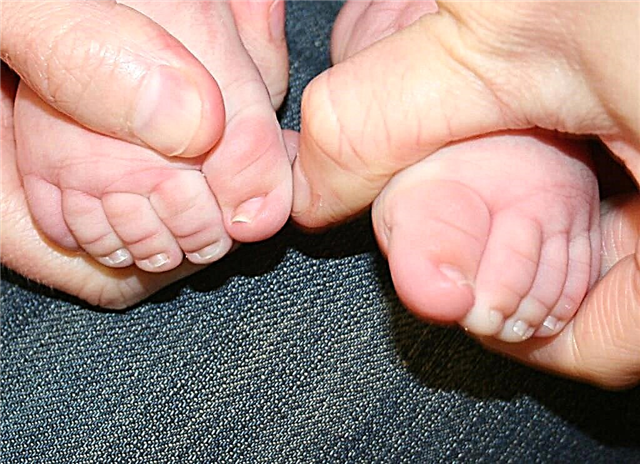The inability of a one-year-old toddler to talk is especially troubling for parents if they meet a baby of the same age who has already mastered the pronunciation of many words. The question inevitably arises: if a child doesn't speak in a year, should mom and dad be worried?

Baby tries to speak
Features of the development of the speech apparatus
A child opens up the first opportunities for communication when he learns that with crying he manages to get food and comfort. Moreover, newborns from the first months already begin to recognize important sounds around them, for example, the voice of their mother. As they get older, children begin to understand the speech sounds that make up the words of their language. By six months, they already distinguish all sounds.
Important! As with any aspect of development, each child has a different rhythm in language acquisition. It all depends on the individual development of the baby, on when his brain is biologically prepared to pronounce the first words.
However, not all children follow natural progression, or a series of stages, to master language skills. Sometimes they are delayed in reaching these stages due to hearing problems, in other cases - with the organs that make up the speech apparatus (central nervous system, lungs and bronchi, throat and larynx, mouth and nose). Also, the development of speech can be influenced by the external conditions in which the child grows up.
Speech development standards
Speech is the act of speaking, one of the ways to communicate. It involves precise coordination of the muscular actions of the tongue, lips, jaws, and vocal tract to create the recognizable sounds that make up the tongue. In the development of speech and hearing, the child must go through a number of successive stages, at each of which he must show certain achievements.
Newborn up to 3 months:
- reacts to sounds;
- calms down and smiles when they talk to him;

Baby smiles at mom
- cries in a special way, depending on what bothers him;
- begins to hum and make separate sounds.
4 to 6 months:
- follows sounds with the eyes, trying to determine their sources;
- reacts to changes in the tone of the mother's voice;
- recognizes objects that produce sounds;
- pronounces a number of simple syllables such as "ma", "ba", "pa";
- able to laugh.
7 months to 1 year:
- turns his head and looks where the sounds come from;
- listens carefully when adults speak;
- babababa, papapapa, mamamama groups of syllables babble;
- imitates different sounds of speech;
- understands some words and correctly associates them with objects and actions;
- communicates with gestures, such as raising hands;

Kid waving pen
- can pronounce a few short words.
From one to two years:
- knows different parts of the body and can point to them when asked;
- fulfills simple requests, such as "Give me the ball";
- enjoys stories, songs and poetry;
- connects words into simple sentences: "Where is dad?";
- constantly replenishes speech with new words;
- pronounces more and more consonants.
When they say that a child speaks a year, it means that he utters a few simple words and understands the speech addressed to him.
Alarming symptoms
We can talk about a simple speech delay, when, relative to the chronological age of the child, he masters certain stages in the development of speech later. If the child has not yet said "mom" in the year, this does not necessarily indicate speech disorders, especially when he utters other sounds.
However, it is not always easy for parents to find out how much time their baby needs to master the next stage of speech development. They are worried, suggesting there are problems that require medical attention.
Important! A child who does not respond to any sounds and does not make them himself must be shown to a specialist.
What sign may indicate problems with the speech apparatus is determined depending on age:
- One year old: does not use gestures to communicate (does not point out, does not wave a pen when parting, etc.);
- 1.5 years: communicates only with gestures, does not try to reproduce syllables, cannot imitate sounds, poorly understands or does not understand requests addressed to him at all;
- 2 years: can only repeat the words and actions of adults, but does not show the initiative to communicate, has a strange tone of voice (for example, wheezing).
Important! If the baby does not pronounce the words properly, so that even the mother does not understand him (in a two-year-old baby, she should understand about half of the words, in a three-year-old - 75%), this is also a reason for contacting a specialist.
Causes of speech delay
Why a one-year-old baby does not pronounce syllables and does not show interest in communication is determined by various factors:
- Anatomical disorders in the development of the tongue and palate. For example, a short bridle, or fold under the tongue, limits the movement of the tongue when making sounds;

Short bridle in a child
- Hearing problems. They can occur due to fetal developmental defects during the mother's pregnancy, hereditary diseases, complications after ear infections.
Important! If an infant has hearing problems, he or she also cannot imitate sounds and understand words addressed to him.
- Genetic factor. When a baby has relatives who started talking late, it is possible that he will not speak early;
- Disorder of oral-motor functions. They occur when there are disturbances in the areas of the brain involved in the production of speech that make it difficult for the child to coordinate the tongue, jaw, and lips;
- Autism. Children with autistic disabilities begin to speak much later due to self-absorption and detachment from the world around them;

Autistic child
- Delays in mental development;
- Sexual sign. It has been observed that boys start talking later than girls. This is true for most male babies, but not all. Interestingly, boys begin to build words into sentences faster;
- Simultaneous teaching of several languages. If the family speaks with the baby in different languages, then it takes him more time to recognize sounds and understand the meaning of words.
Important! To successfully master several languages at the same time, it is necessary that each adult speaks with the baby only in one of them. Then it is easier for the baby to associate a certain person with the characteristic sounds of speech, and language acquisition is faster.
- The presence of systemic diseases. If a child suffers from serious illnesses since childhood, he may have a decrease in general interest in cognitive activity;
- Nervous stress. If the baby has suffered a strong emotional experience, which may be associated with an unfavorable atmosphere in the family, separation from the mother, etc., the development of his speech may slow down;
- Lack of communication. In families where little attention is paid to the baby, they do not try to interact with him using gestural communication or conversations, his speech skills are formed with a delay;
- Excessive custody. When the baby is not encouraged to express his desires, but try to prevent them, the motivation to pronounce the words decreases.
Ways to speed up speech development
If the baby does not have any problems with the development of speech, requiring the intervention of specialists, parents can talk him, giving your baby attention throughout the day:
- You need to constantly talk with your baby from birth. In addition to the fact that the voice of dad or mom soothes him, the child gradually begins to understand that language is necessary for communication;

Mom talks to the baby
- If the baby is still small, five months or less, then sometimes it is possible, while talking to him, to imitate children's speech or the voices of cartoon characters, but when addressing children over six months, it is necessary to pronounce the words in a regular tone, not to shout or lisp. The baby will imitate exactly the type of sounds that parents make;
- It is better to use short monosyllabic or disyllabic words when asking the baby to do something, for example, "give", "stop", "bye." When imitating longer words, the infant usually pronounces only the last syllable and is difficult to understand;
- Although a one-year-old child cannot speak, he absorbs everything that happens around him. On a walk, you need to tell what color the car is, where we will go, etc.;
- Picture books are a great help in developing speech skills. You can show your kid different animals, and then ask him to recognize them. Soon he will start naming his favorite characters;

Baby watching pictures
- Games also stimulate speech activity. Having chosen the favorite toy of the kid, you can show it, and then put it somewhere, for example, hide it under other toys. Then encourage the child to look for her, sorting through objects and asking about each;
- Children are very fond of music, songs, rhymes and try to repeat them after their mother. They immediately recognize their favorite tunes and rejoice when they hear familiar sounds.
Do not worry if the baby does not speak many words or reproduces only syllables per year. With patient and calm activities with the baby and sufficient attention, he will soon begin to surprise parents with his achievements every day.



